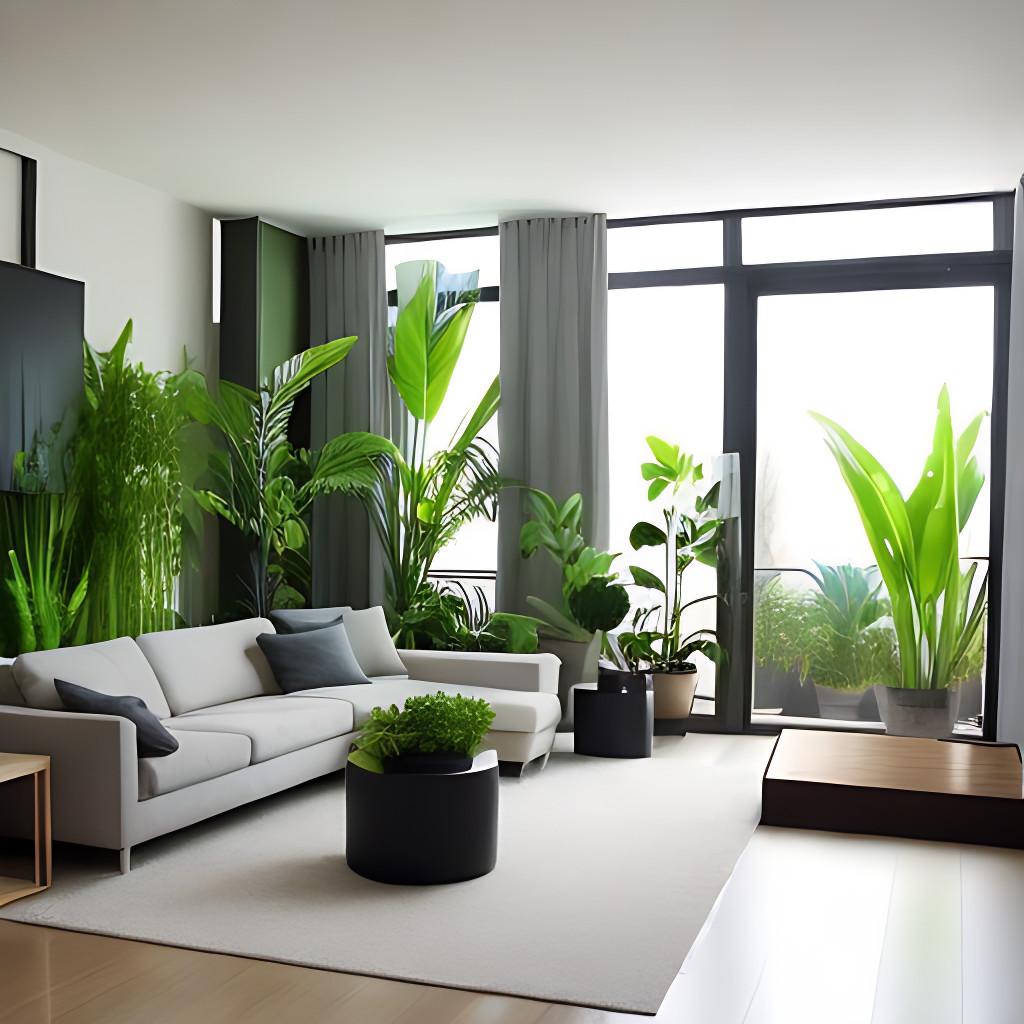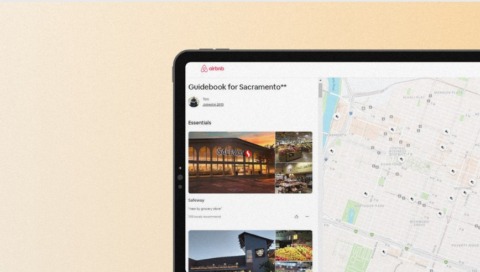Imagine this – you walk into an Airbnb rental after a long day of travel, and you’re immediately enveloped by a calming, natural ambiance created by an array of lush, green plants. Welcome to the world of Airbnb plants, a blossoming trend that’s breathing new life into vacation rentals across the globe.
Importance of Plants in Interior Design
In the world of interior design, plants are more than just decorative elements – they are essential pieces that bring spaces to life. Studies show that the presence of plants in indoor spaces can reduce stress levels, boost mood, and even improve air quality.
Studies show that the presence of plants in indoor spaces can reduce stress levels, boost mood, and even improve air quality. For instance, a study published on Nepal Journal Online found that plants and their associated microflora can significantly reduce environmental VOC gases, inorganic gases, particulate matter, and other pollutants contained in the air.
They also found that plants can boost the mood, productivity, concentration, and creativity of the occupants and reduce stress, fatigue, sore throat, and cold.
Another study by the American Psychology Association also shows that plants can increase productivity and concentration by up to 15% – an attribute that can appeal greatly to those guests renting your space for work or study.
By incorporating plants into your Airbnb, you not only enhance the aesthetic appeal of your property but also contribute positively to the well-being of your guests. And what does that mean for you? Great reviews, repeat bookings, and ultimately, a thriving rental business!

Don’t let poor management crush your returns.
Follow my 3-step mandatory reservation checklist to ensure your property is prepared to maximize returns.
Choosing the Right Airbnb Plants
So, you’re convinced about the benefits of plants and are ready to transform your rental space into an urban jungle.
But which plants should you choose? How do you make sure you select the right Airbnb plants?
When choosing plants for your Airbnb, consider factors such as light requirements, maintenance needs, and the plant’s size and appearance.
It’s essential to opt for hardy plants that can withstand a variety of conditions and require little care, especially if you can’t be there regularly to tend to them. It’s also worth considering the plant’s potential for causing allergic reactions. Non-toxic, hypoallergenic plants are the safest bet.
Remember don’t go overboard. You don’t want to burden your guests, you also don’t want to waste money where you don’t need to or create a whole bunch of maintenance tasks that are going to jump up your day.
Tim Hubbard
Fake VS Real Plants
In the realm of short-term rentals, the debate between incorporating real versus artificial plants into your space is a lively one. Each choice comes with its unique set of advantages and drawbacks, and the optimal decision often hinges on your specific circumstances and preferences.
Let’s take a look at the advantages and disadvantages of each one.
Real Plants
PROS
- Act as natural air purifiers.
- Add authenticity and warmth to your space.
- Their natural beauty can be appreciated by guests.
CONS
- Require regular care, including watering and pruning.
- Some have specific light and temperature needs.
- If neglected, they can attract pests or develop diseases.
Fake Plants
PROS
- Low-maintenance, ideal for busy hosts.
- Suitable for spaces with low light or extreme temperatures.
- High-quality ones can look very realistic and last for years.
CONS
- Some may look cheap or artificial.
- Lack the air purifying benefits of real plants.
- Some guests may prefer the authenticity of real plants.
My Top 3 Picks for the Best Airbnb Plants
I’m going to let you in on my personal favorite plants that I like to use in my rentals. These aren’t just any plants; they’re the tried-and-true champions that have consistently added that ‘wow’ factor to numerous Airbnb properties over the years.
These plants aren’t just about aesthetics; they’re also about practicality. They’re low-maintenance and hardy, making them perfect for the hustle and bustle of the short-term rental world.
Aloe Vera
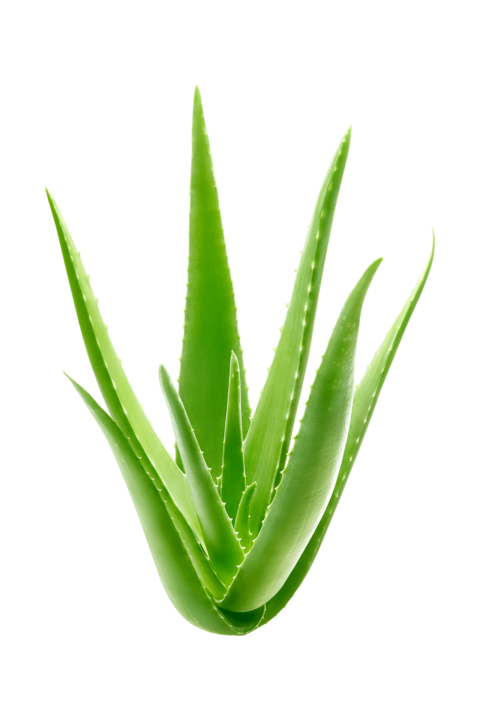
- Care Difficulty: Very easy
- Light Needed: Bright, indirect light
- Water Needed: Low
- Soil: Cactus soil or regular potting soil mixed with perlite
- Repotting: Every 2-3 years, or when it becomes root-bound
- Climate: Arid, 55-80°F
- Growth Size: Up to 1-2 feet tall
- Toxicity: Toxic to pets and babies
The humble Aloe Vera plant is an excellent addition to any Airbnb. This easy-going succulent prefers bright, indirect sunlight and watering once every two to three weeks or when the soil is completely dry.
It’s not just an easy-care plant; it also doubles as a first aid resource. The gel inside its leaves can be used to soothe minor burns, cuts, and skin irritations — a thoughtful touch for guests who value natural remedies.
Rubber Plant (Ficus elastica)
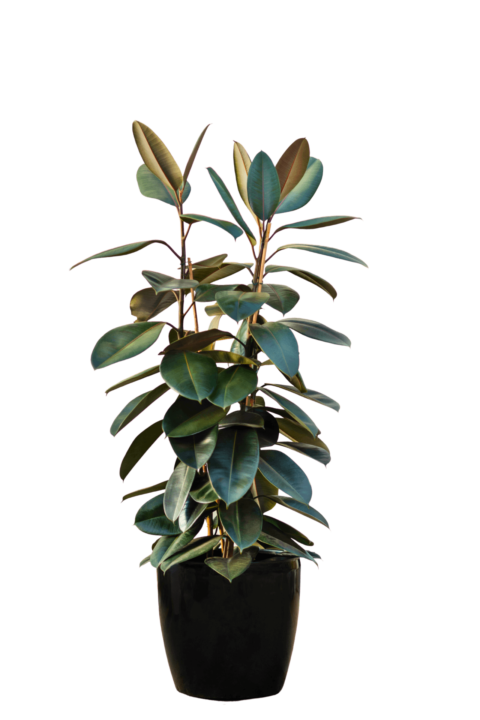
- Care Difficulty: Easy
- Light Needed: Moderate to bright
- Water Needed: Moderate
- Soil: Well-draining potting mix
- Repotting: Every 2 years, in spring
- Climate: Prefers warmer climates, 60-75°F
- Growth Size: Up to 6-10 feet tall
- Toxicity: Toxic to cats and dogs
Rubber plants, with their large, glossy, burgundy-colored leaves, are a feast for the eyes. They adapt well to a wide range of conditions but prefer bright, indirect light. Watering should be moderate — once the top inch of soil is dry, it’s time for a drink.
With the ability to grow quite large, these plants make excellent choices for filling empty corners or creating a focal point in a room. Their hardy nature and stunning visuals make them a favorite among Airbnb hosts.
Snake Plant (Dracaena trifasciata)
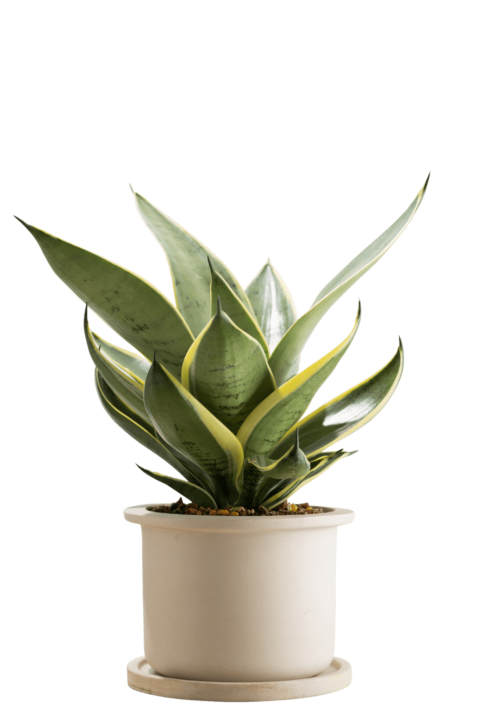
- Care Difficulty: Very easy
- Light Needed: Low
- Water Needed: Low
- Soil: Well-draining sandy soil
- Repotting: Rarely required, only when root-bound
- Climate: Tolerant of a wide range of climates
- Growth Size: Up to 1-3 feet tall
- Toxicity: Toxic to cats and dogs
Rubber plants, with their large, glossy, burgundy-colored leaves, are a feast for the eyes. They adapt well to a wide range of conditions but prefer bright, indirect light. Watering should be moderate — once the top inch of soil is dry, it’s time for a drink.
With the ability to grow quite large, these plants make excellent choices for filling empty corners or creating a focal point in a room. Their hardy nature and stunning visuals make them a favorite among Airbnb hosts.
Other Great Airbnb Plant Choices
Pothos (Epipremnum aureum)
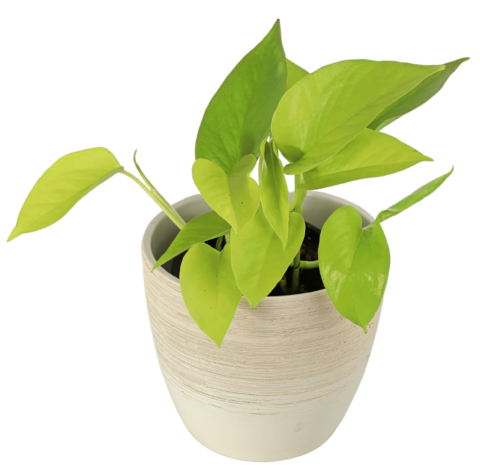
- Care Difficulty: Very easy
- Light Needed: Low to moderate
- Water Needed: Moderate
- Soil: Well-draining potting mix
- Repotting: Every 2 years, or when it becomes root-bound
- Climate: Humid, 60-85°F
- Growth Size: Trailing plant, can grow several feet long
- Toxicity: Toxic to cats and dogs
Pothos, also known as devil’s ivy, is a charming, trailing plant that adds a touch of warmth to your space. It’s adaptable and can tolerate low light levels, making it suitable for rooms with less natural light. Water when the top inch of soil is dry, usually once a week.
The heart-shaped leaves, especially the golden variety, bring a touch of charm and cheerfulness to any room.
Spider Plants (Chlorophytum comosum)
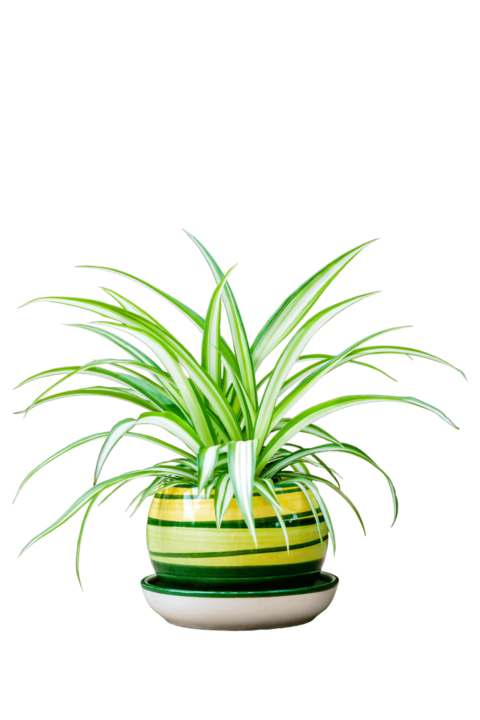
- Care Difficulty: Very easy
- Light Needed: Low to moderate
- Water Needed: Moderate
- Soil: Well-draining potting mix
- Repotting: Every 2-3 years, or when it becomes root-bound
- Climate: Moderate to warm, 65-75°F
- Growth Size: 1-2 feet tall, with arching leaves
- Toxicity: Not toxic
Spider plants are air-purifying champions and adapt well to a wide variety of conditions. They prefer bright to moderate indirect light and watering about once a week or when the top inch of soil is dry.
These plants are non-toxic, making them safe for properties that allow pets. And with their arching leaves, they make great hanging plants, adding a vertical element to your interiors.
Rex Begonia (Begonia rex-cultorum)
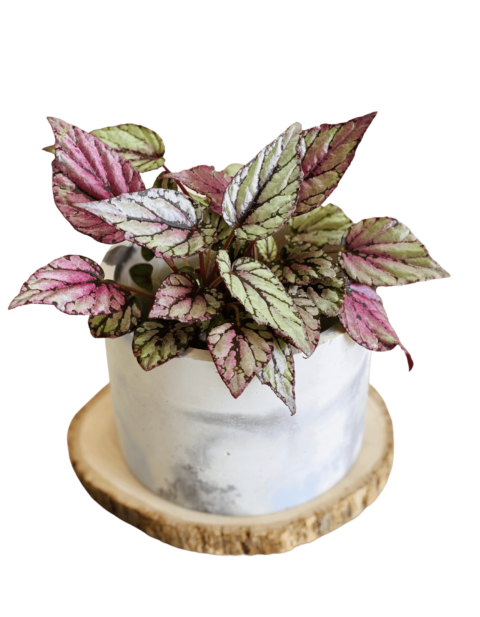
- Care Difficulty: Moderate
- Light Needed: Moderate to bright, indirect
- Water Needed: Moderate
- Soil: Rich, well-draining potting mix
- Repotting: Every 2-3 years, or when it becomes root-bound
- Climate: Humid, 60-80°F
- Growth Size: Up to 1-2 feet tall
- Toxicity: Toxic to cats and dogs
Rex Begonia, with its bold, vibrant, and patterned leaves, truly stands out. It prefers medium to bright indirect light and watering when the top inch of soil is dry. Despite their exotic appearance, these plants are quite hardy and prefer to be left on the dry side, making them suitable for an Airbnb setting.
They’re ideal for tabletops or shelves, where guests can admire their unique patterns up close.
Boston Fern (Nephrolepis exaltata)
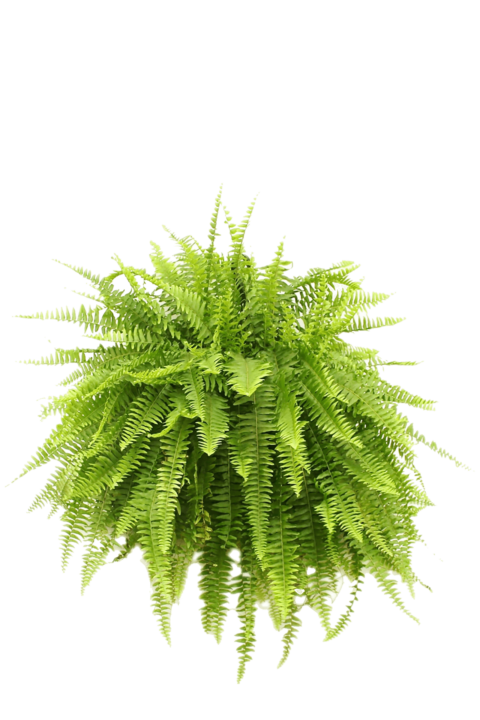
- Care Difficulty: Moderate
- Light Needed: Medium to bright, edium and bright, indirect sunlight
- Water Needed: High
- Soil: Rich, well-draining potting mix
- Repotting: Every 2 years, or when it becomes root-bound
- Climate: Humid, 65-75°F
- Growth Size: 2-3 feet wide and tall
- Toxicity: Not toxic
The Boston Fern is the last on our list but definitely not the least. These plants are excellent humidifiers and can help to restore moisture in the air, making them particularly well-suited to homes located in drier climates.
They thrive in high humidity and indirect light. Water them when the top inch of the soil feels dry, usually about once a week – if you’re in a hot climate you can water it daily.
Best Fake Airbnb Plants
These aren’t your average faux plants; they’re the top-tier selections that have consistently proven to be a hit in the Airbnb scene, offering the allure of greenery without the associated upkeep.
Artificial plants can be a boon for the busy Airbnb host. They offer the aesthetic appeal of real plants, but without the maintenance requirements. This makes them an ideal choice for hosts who want to create a welcoming, natural environment for their guests, but may not have the time or resources to care for real plants.
Palm Tree
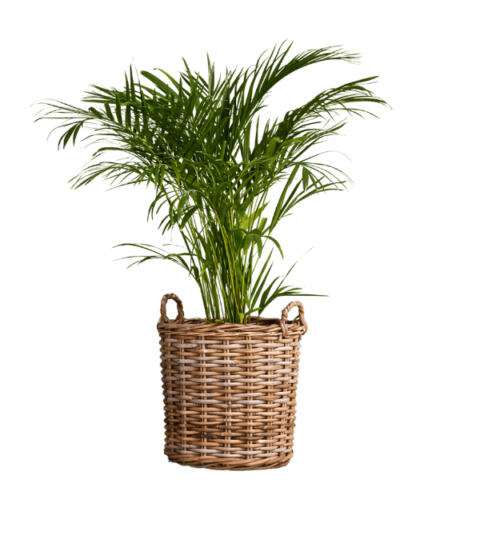
These tropical plants can add a warm, exotic touch to your space. When choosing a fake palm tree, look for one with detailed fronds and a realistic trunk to enhance its authenticity.
They work well in corners of rooms where they can add height and interest.
Dieffenbachia Plant
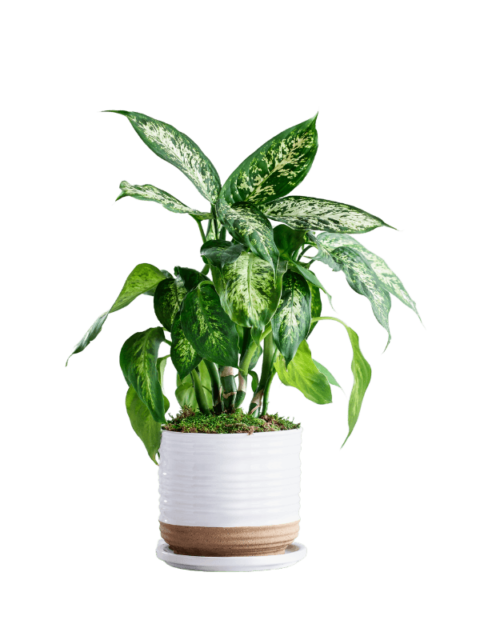
Dieffenbachia plants have large, broad leaves that can brighten up any room.
When selecting a fake one, look for plants with detailed leaf patterns to mimic the real thing. They work well on tabletops or desks.
Monstera Deliciosa

This plant, also known as the Swiss cheese plant, is trendy due to its unique, large leaves with natural holes.
They can add a modern touch to your space. Make sure the artificial version has these distinctive leaves.
Fiddle Leaf Fig Tree
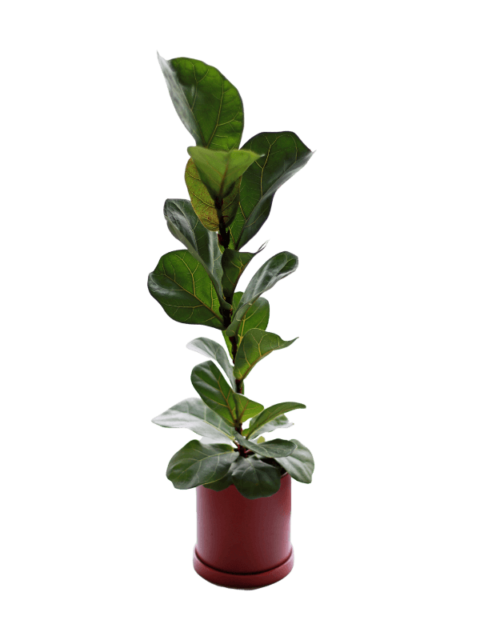
These trees are a favorite among interior designers for their sculptural leaves.
When choosing a fake one, look for large, detailed leaves and a realistic trunk. They make a great statement piece in a room
Bougainvillea Hanging Basket
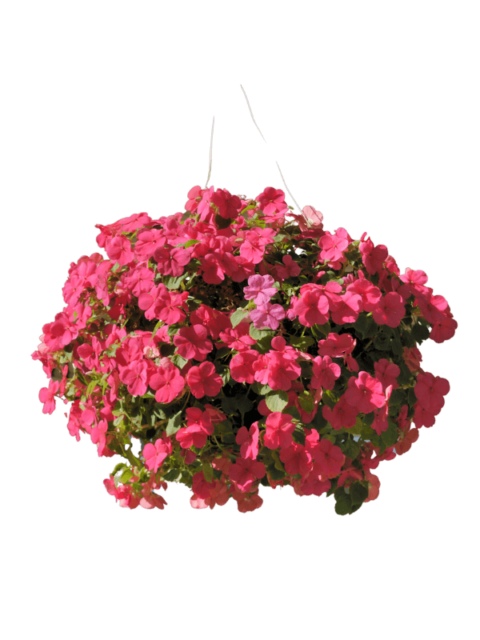
Bougainvilleas are known for their stunning, colorful flowers. An artificial bougainvillea can brighten up any space.
Choose one with vibrant, realistic flowers.
Peony Centerpiece
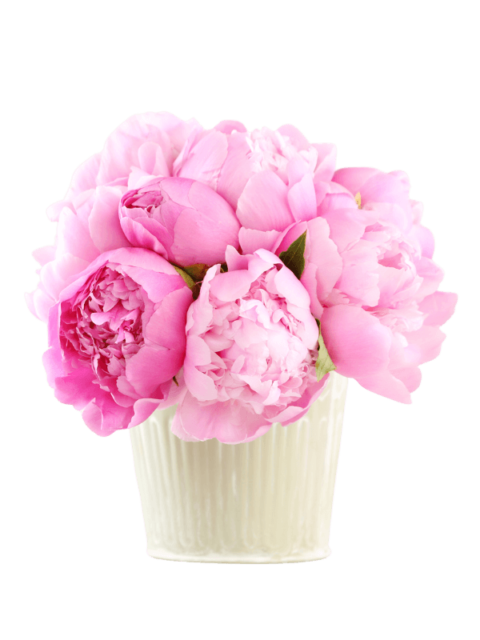
Peonies are known for their large, lush blooms. An artificial peony centerpiece can add a touch of elegance to a dining table or mantel.
Choose one with realistic, full blooms.
Succulent Garden
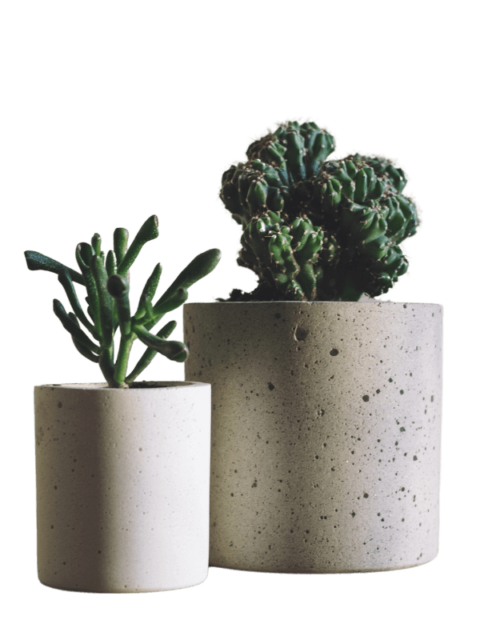
Succulents are charming and come in a variety of shapes and sizes.
An artificial succulent garden can add interest to a tabletop or desk.
Look for a mix of different types of succulents for a realistic look.
Questions to Think About
- How much time and effort can I dedicate to plant care?
If you’re a busy host or lack a green thumb, artificial plants may be your go-to choice. - What are the light and temperature conditions in my rental?
If your space doesn’t offer the ideal conditions for plant growth, artificial plants may be a more suitable option. - What is my budget?
High-quality artificial plants can be more expensive upfront, but they don’t require the ongoing care that real plants do. - What do my guests prefer?
If your target demographic appreciates authenticity and natural elements, they may favor real plants. Conversely, if your guests value low-maintenance and consistency, artificial plants may be a better fit. - What aligns with my decor style?
Both real and artificial plants come in a variety of styles and sizes. Choose plants that complement your decor. - What are the potential risks?
Consider factors like potential plant diseases, pests, or allergies that could affect your guests.

